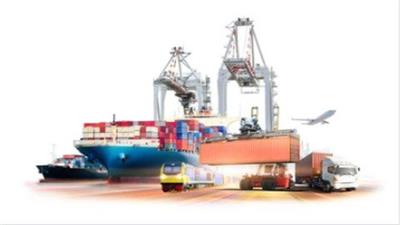Transportation Model
Published 4/2023
MP4 | Video: h264, 1280x720 | Audio: AAC, 44.1 KHz
Language: English | Size: 3.75 GB | Duration: 13h 16m
Operational Research, Supply Chain Management
What you'll learn
Learn the basic concepts and assumptions of transportation model.
Learn to formulate a transportation table for a transportation problem.
Identify how to find out the basic initial feasible solution for a transportation problem using different methods
Complete a case study to review how transportation model is used in the induction process by Navy.
Explore different methods such as Vogel's approximation method, Least Cost method, North West Corner rule, Stepping Stone method, Modified distribution method.
Requirements
You don't need any perquisites for taking this course
Description
A transportation model is a mathematical tool used to optimize the distribution of goods between various sources and destinations. It is a powerful tool that can help businesses reduce costs, improve customer service, and maximize their operations.Understand What a Transportation Model Is and How It Works. A transportation model is a mathematical tool used to optimize the movement of goods from sources and locations to their destinations. The goal of this type of optimization is to minimize total costs while balancing customer service expectations. It considers various constraints such as shipment size, availability of transport capacity, cost structures, and others. By understanding the fundamentals of a transportation model, businesses can make more informed decisions and increase their operational efficiency.Transportation models are also beneficial in helping businesses analyze their current supply chain and identify potential areas of improvement or cost savings. They can be used to better understand the trade-offs between speed and cost, as well as customer service levels. Additionally, they can assist when deciding whether a long-term investment in a particular carrier or mode is worth the cost, in addition to optimizing production scheduling and inventory management practices. Ultimately, transportation models provide supply chain managers with insights that could transform the way they approach logistics operations.In this course, you will learn different methods to solve the problem related to a transportation model. These methods includes North West Corner Method (NWCM), Least Cost Method (LCM), Vogel's Approximation Method (VAM), Optimality test, Modified distribution method, Stepping stone method.
Overview
Section 1: Introduction and different methods of Transportation model
Lecture 1 Transportation model - Concepts
Lecture 2 Transportation model - Assumptions
Lecture 3 Transportation model - Procedural Steps
Lecture 4 TM - Step 1 - Formulation of transportation table
Lecture 5 TM - Step 2a - North West Corner rule
Lecture 6 TM - Step 2b - Least Cost method
Lecture 7 TM - Step 2c - Vogels approx method
Lecture 8 TM - Step 3 - Acceptability test
Lecture 9 TM - Step 4a - Stepping Stone method
Lecture 10 TM - Step 4b - Modified distribution method
Lecture 11 TM - Step 5a - Iterate towards optimality using SSM
Lecture 12 TM - Step 5b - Iterate towards optimality using MODI
Lecture 13 Transportation model - Case Study
Section 2: Examples of Transportation model
Lecture 14 TM - Example 1 - North West Corner Method (NWCM)
Lecture 15 TM - Example 2 - Least Cost Method (LCM)
Lecture 16 TM - Example 3 - Vogel's Approximation Method (VAM)
Lecture 17 TM - Example 4 - North West Corner Method (NWCM)
Lecture 18 TM - Example 5 - Least Cost Method (LCM)
Lecture 19 TM - Example 6 - Vogel's Approximation Method (VAM)
Lecture 20 TM - Example 7 - NWCM, LCM, VAM
Lecture 21 TM - Example 8 - Vogel's Approximation Method (VAM)
Lecture 22 TM - Example 9 - Optimality test
Lecture 23 TM - Example 10 - Unbalanced (Part 1)
Lecture 24 TM - Example 10 - Unbalanced (Part 2)
Lecture 25 TM - Example 11 - Unbalanced transportation problem
Lecture 26 TM - Example 12 - Prohibited route problem (Part 1)
Lecture 27 TM - Example 12 - Prohibited route problem (Part 2)
Lecture 28 TM - Example 13 - Alternate optimal solution
Lecture 29 TM - Example 14 - Degeneracy (Part 1)
Lecture 30 TM - Example 14 - Degeneracy (Part 2)
Lecture 31 TM - Example 15 - Maximization objective
The course can be useful for students studying operations research, professionals working in IT or Management industry responsible for managing the project.,Professionals working in supply chain management or in finance field.
rapidgator.net:
nitroflare.com:Kod:https://rapidgator.net/file/616b72e970dde26d59ddb9085ecbd6f8/mkmoz.Transportation.Model.part1.rar.html https://rapidgator.net/file/271e36a76686dc4b595bfb8c759471bc/mkmoz.Transportation.Model.part2.rar.html https://rapidgator.net/file/45650f18ff091f4c2d2c1c511f633850/mkmoz.Transportation.Model.part3.rar.html https://rapidgator.net/file/155ef0f519b5f51083aa27c04f5404f8/mkmoz.Transportation.Model.part4.rar.html
ddownload.com:Kod:https://nitroflare.com/view/A50675E40C0A82C/mkmoz.Transportation.Model.part1.rar https://nitroflare.com/view/29248D96765D499/mkmoz.Transportation.Model.part2.rar https://nitroflare.com/view/668C0304741F512/mkmoz.Transportation.Model.part3.rar https://nitroflare.com/view/57DD2752AA83889/mkmoz.Transportation.Model.part4.rar
1dl.net:Kod:https://ddownload.com/qo07xmfs4lxn/mkmoz.Transportation.Model.part1.rar https://ddownload.com/ytbvnhluy0ij/mkmoz.Transportation.Model.part2.rar https://ddownload.com/9tqqw1rfpytt/mkmoz.Transportation.Model.part3.rar https://ddownload.com/8ozimalbnm20/mkmoz.Transportation.Model.part4.rar
Kod:https://1dl.net/5793vwmq9vxp/mkmoz.Transportation.Model.part1.rar https://1dl.net/cl15d1ad3v94/mkmoz.Transportation.Model.part2.rar https://1dl.net/hvw3jc99utw4/mkmoz.Transportation.Model.part3.rar https://1dl.net/523ui2dafpy9/mkmoz.Transportation.Model.part4.rar
1 sonuçtan 1 ile 1 arası
Konu: Transportation Model
-
20.04.2023 #1Üye



- Üyelik tarihi
- 20.08.2016
- Mesajlar
- 144.947
- Konular
- 0
- Bölümü
- Bilgisayar
- Cinsiyet
- Kadın
- Tecrübe Puanı
- 153
Transportation Model
Konu Bilgileri
Users Browsing this Thread
Şu an 1 kullanıcı var. (0 üye ve 1 konuk)



 LinkBack URL
LinkBack URL About LinkBacks
About LinkBacks





 Alıntı
Alıntı
Konuyu Favori Sayfanıza Ekleyin